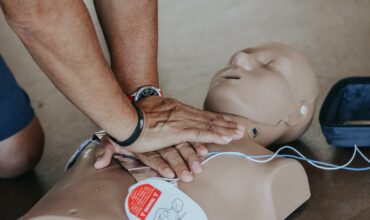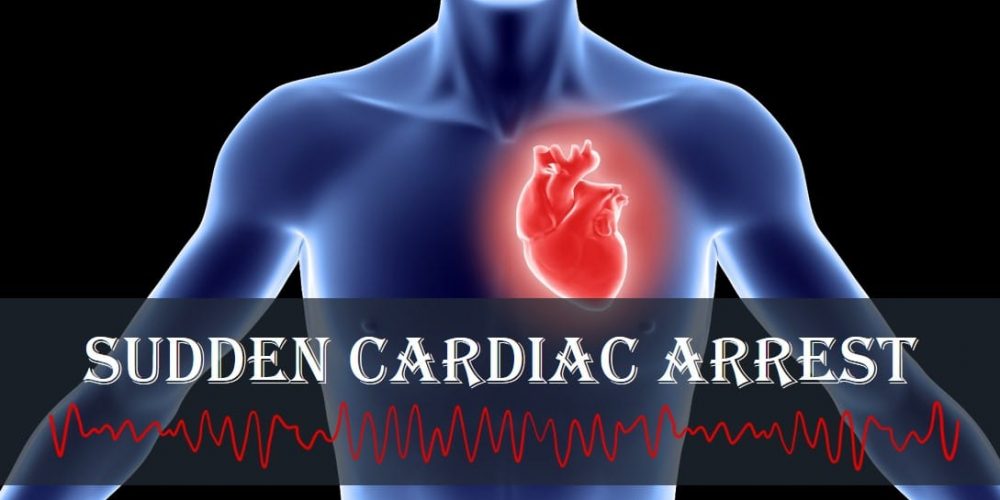- Your cart is empty
- Continue Shopping


Sudden cardiac arrest is a medical emergency that occurs when the heart suddenly stops beating.
This can happen for a number of reasons, but one of the most common causes is a condition called ventricular fibrillation, where the heart’s electrical activity becomes chaotic and the heart is unable to pump blood effectively.
There are several factors that can increase a person’s risk of developing ventricular fibrillation.
People with certain underlying medical conditions, such as heart disease or previous heart attack, are more likely to develop the condition.
Other risk factors include smoking, high blood pressure, obesity, and a sedentary lifestyle. Older people are also more likely to develop ventricular fibrillation. Additionally, people who have experienced a previous episode of ventricular fibrillation are at increased risk of developing the condition again in the future.
Sudden cardiac arrest is a leading cause of death in the United States, with over 350,000 cases occurring each year.
It can happen to anyone, regardless of age, gender, or fitness level.
The most common cause of sudden cardiac arrest is ventricular fibrillation, a condition where the heart’s electrical activity becomes chaotic.
Sudden cardiac arrest is not the same as a heart attack, which is caused by a blockage in the blood supply to the heart.
The chances of surviving sudden cardiac arrest are much higher if it is treated with defibrillation within the first few minutes.
CPR, or cardiopulmonary resuscitation, can help keep blood flowing to the brain and other vital organs until defibrillation can be performed.
A device called an automated external defibrillator (AED) can be used to shock the heart back into a normal rhythm in cases of sudden cardiac arrest.
Many public places, such as airports, malls, and schools, now have AEDs available for use in emergency situations.
Sudden cardiac arrest can sometimes be caused by inherited conditions, such as long QT syndrome or hypertrophic cardiomyopathy.
In some cases, sudden cardiac arrest can be triggered by intense physical activity or emotional stress.
Sudden cardiac arrest and heart attack are two different medical conditions, although they are often confused. Sudden cardiac arrest occurs when the heart suddenly stops beating, often as a result of a condition called ventricular fibrillation.
This can happen to anyone, regardless of age or health, and it is a medical emergency that requires immediate treatment.
A heart attack, on the other hand, is caused by a blockage in the blood supply to the heart.
This can happen when a blood clot forms in one of the arteries that supply blood to the heart, cutting off the flow of oxygen-rich blood. A heart attack can be a severe medical emergency, but it is not the same as sudden cardiac arrest.
The main difference between the two conditions is the cause. Sudden cardiac arrest is caused by a disruption in the heart’s electrical activity, while a heart attack is caused by a blockage in the blood supply to the heart. Additionally, the symptoms and treatment of the two conditions are different. Sudden cardiac arrest requires immediate defibrillation to restore the heart’s normal rhythm, while a heart attack is treated with medications to dissolve the blood clot and restore blood flow to the heart.
Sudden cardiac arrest and heart attack are treated differently, as they are caused by different medical conditions. Sudden cardiac arrest is treated with immediate defibrillation, which is a process of delivering an electrical shock to the heart to restore its normal rhythm.
This is typically done with a device called an automated external defibrillator (AED), which can be used by anyone, even if they have no medical training. CPR, or cardiopulmonary resuscitation, can also be performed to keep blood flowing to the brain and other vital organs until defibrillation can be performed.
A heart attack, on the other hand, is treated with medications to dissolve the blood clot that is blocking the blood flow to the heart.
This can be done with a drug called tissue plasminogen activator (tPA), which is given through a vein in the arm. Other medications, such as aspirin and beta blockers, may also be given to help prevent further damage to the heart. In some cases, a procedure called angioplasty may be performed to open the blocked artery and restore blood flow to the heart.
It is important to remember that both sudden cardiac arrest and heart attack are medical emergencies that require immediate treatment. If you think you or someone else is experiencing either of these conditions, call 911 right away.

Unfortunately, SCA is a medical emergency that can happen to anyone, regardless of age.. This can happen to children as well as adults, although it is less common in children.
There are several factors that can increase a child’s risk of developing ventricular fibrillation and sudden cardiac arrest. Children with certain underlying medical conditions, such as heart defects or previous heart attack, are more likely to develop the condition. Other risk factors include a family history of sudden cardiac arrest, certain genetic conditions, and viral infections.
It is important for children to receive regular medical check-ups to identify any potential health issues and to take steps to prevent sudden cardiac arrest. If a child experiences symptoms such as fainting or chest pain, they should see a doctor right away to determine the cause and receive appropriate treatment.
In general, sudden cardiac arrest is rare in children, but it can happen. It is a serious medical emergency that requires immediate treatment. If you think your child is experiencing sudden cardiac arrest, call 911 right away.
Implementation Guide